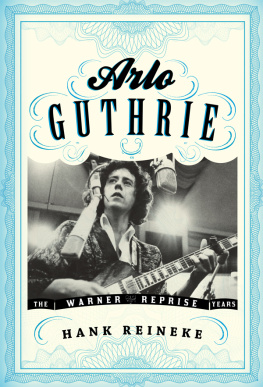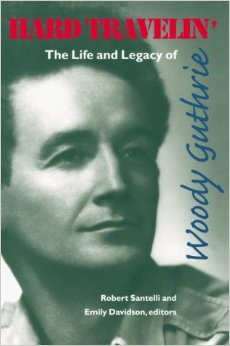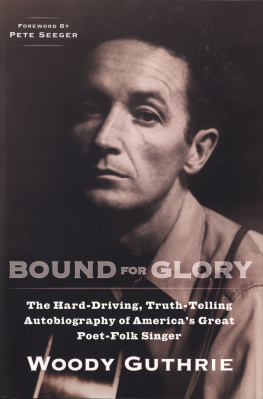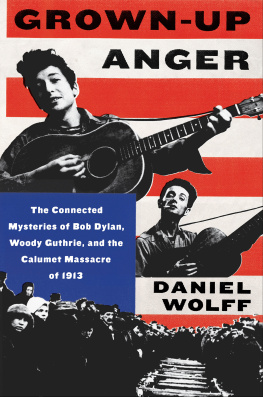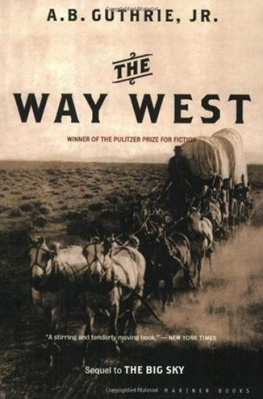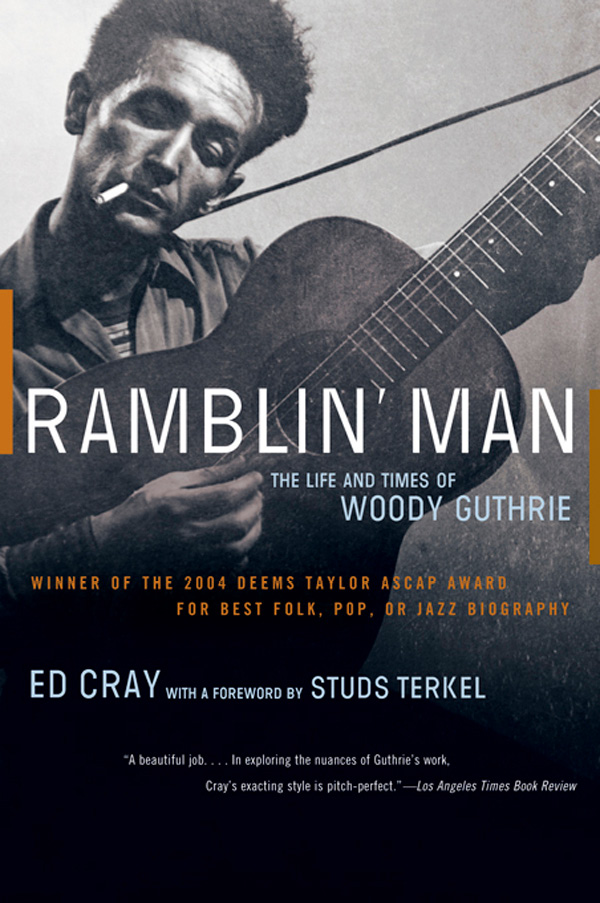
Also by Ed Cray
CHIEF JUSTICE: A BIOGRAPHY OF EARL WARREN
AMERICAN DATELINES (CO-EDITOR)
GENERAL OF THE ARMY: GEORGE C. MARSHALL, SOLDIER-STATESMAN
CHROME COLOSSUS
LEVIS
BURDEN OF PROOF: THE TRIAL OF JUAN CORONA
THE ENEMY IN THE STREETS
IN FAILING HEALTH
THE BIG BLUE LINE
THE EROTIC MUSE
THE FIFTEEN PLAGUES OF MAIDENHEAD AND OTHER FORBIDDEN VERSE
THE ANTHOLOGY OF RESTORATION EROTIC POETRY
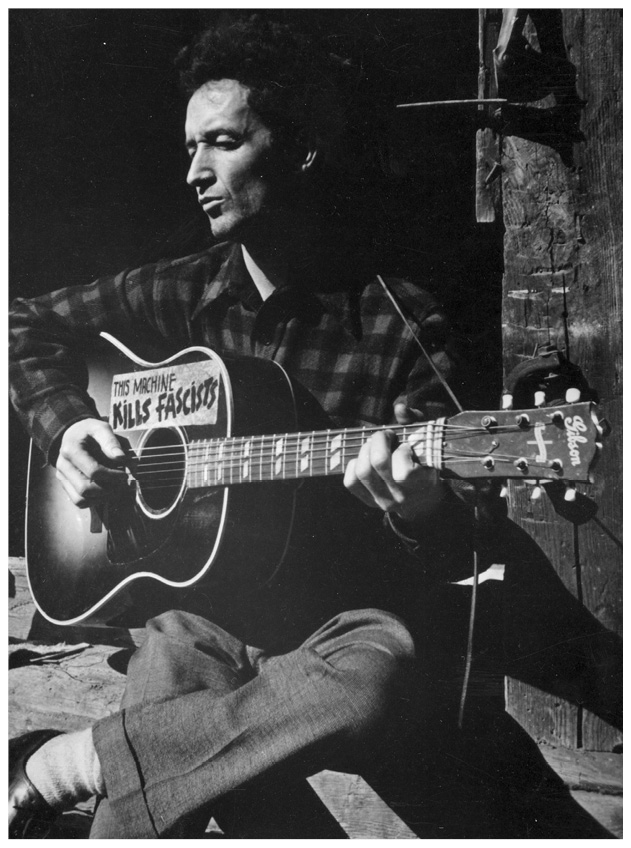
Ramblin Man
THE LIFE AND TIMES
OF WOODY GUTHRIE
Ed Cray
W. W. NORTON & COMPANY | NEW YORK LONDON
This book is dedicated to
Emily and Tessa
by their grandfather
CONTENTS
About all a human being is, anyway,
is just a hoping machine.
WOODY GUTHRIE
AUTHORS NOTE
I N ALL CASES I have used the names of people as they were known at the time. Thus Marianne Robinson of 2003 is Jolly Smollens of 1948, and so on.
Furthermore, I have attempted to replicate Woody Guthries writings here as faithfully as possible, without correcting his deliberately idiosyncratic spellings or grammar. As the perceptive reader will soon realize, Woodrow Wilson Guthrie was a well-read autodidact; he deliberately adopted misspellings and grammatical lapses for effect.
ACKNOWLEDGMENTS
A BOOK OF THIS nature would not be possible without the contributions of many, first among whom is my wife, Diane Kovacs. She was, in the words of the late Dean Acheson, present at the creation, and she taught me much I needed to know to understand the complex man who was Woody Guthrie.
It is important too to acknowledge five people who trod this path before me and generously allowed me unlimited access to their research: the late Richard Reuss, whose wife JoAnne opened Reusss invaluable files at Indiana University; E. Victor and Judy Wolfenstein, who thought to write a biography of Guthrie but were stolen away by the tantalizing Malcolm X; Bill Murlin, who has devoted himself to documenting Guthries Bonneville Dam song cycle; and Barry Ollman, who shared what is probably the largest collection of Guthrieana in private hands.
Their papers amplify or complement those held by the Woody Guthrie Archives, whose holdings are reflected on every page of this book. I was granted access to this trovethe first biographer to work in the West 57th Street quartersby Nora Guthrie and Harold Leventhal, a man who defines the Yiddish meaning of the word mensch . May his tribe increase.
In one sense it does. At Leventhals instruction, Jorge Arevalo, Amy Danielian, Jennifer Gotwals, Felicia Katz, and Michael SmithGuthrie archivists allpatiently located documents and tape recordings for me. I am grateful.
Various people read portions of the manuscript: Harold Leventhal and Pete Seeger read the introduction and various chapters; Guy Logsdon read the first two chapters; Mary Jennings Guthrie Boyle read the third chapter; and stalwart Bess Lomax Hawes read the chapters on the Almanac years. Any errors that remain there or elsewhere are the sole property of the author.
Others helped, each in fondly remembered ways: Rachel Adams and Jon Connolly, Greta Walker and Bob Witten, all offered the hospitality of New York City; and Mary Jo Guthrie Edgmon and Ann Guthrie provided spirited Oklahoma welcomes.
Others provided documents or specialists information, including Bill Aldacushion; the late Bernard Asbell; Matt Barton, archivist at the Alan Lomax Archive; Thelma Bray; Anna Lomax Chairetakis, Alan Lomax Archive; Norm Cohen; Ronald Cohen, aka Folk Music Central; Brad Cook at the Indiana University Archives; Margie Crawford and Amy Davis of the Southern Folklife Collection, University of North Carolina; Bill Deverell of CalTech, whose passion for Woody Guthrie is exceeded only by his interest in California history; Christina Gallagher; Judith Gray, American Folklife Center, Library of Congress; Sylvia Grider, of Pampa and Texas A&M; David Gustafson; Frank Hamilton; Marc Igler; Davis Joyce; Kaori Maeyama; Marc Magoni, Annenberg School for Communication, University of Southern California, who dubbed tapes for me; Guy Mason, owner-editor of the Okemah News Leader , for introductions in that town; Evelyn Matzat, of the Long Beach, California, Public Library; Judy McCulloh; Carol Moskowitz, for her paper on Marjorie Guthrie; Joe Mozingo; Donna Munker; Sybilla Nash; Jeff Place of Folkways/Smithsonian; Gerald Porter; Morton Robbin; June Shelley; Nick Spitzer, host of Public Radio Internationals American Routes ; Bernard Bert Somers; Ellen Stekert; Ron Taylor; Stacy Tidmore; and Betty Zulani, of the Orange County, California, Genealogical Society.
Needless to say, I am also grateful to the people who allowed me to record their memories of Woody, sometimes happy recollections, often sad or painful. I acknowledge them here, and list their names in the succeeding pages.
Finally, I would thank Woody Guthries three surviving children, Arlo, Joady, and Nora. They set no conditions, no limits on this project. They have not asked to read the manuscript, implicitly seeking only an honest portrayal of their father.
I have sought to honor that commission.
Ed Cray
January 2003
FOREWORD BY
Studs Terkel
W OODY GUTHRIE WAS , is, Americas balladeer. During the epoch of our deepest despair, the Great Depression, his were the songs that lifted the lowly spirits of the ordinary, the millions of the dispossessed. They may have lacked for bread, but he offered them something else: self-esteem, hope, and a laugh or two along the way. Who was this bard?
Woody Guthrie, a tough, skinny, wind-blown, freckled, curly-headed Huck Finn. A little piece of leather. A dirt-road, hard-pavement, dank-boxcar, cold-city, hot-desert gamin. Coast-to-coast poet and minstrel. Plus shoe shine boy, spittoon washer, hoer of fields, picker of mustang grapes, carpenters helper, well-diggers assistant, sign painter, merchant mariner, fortune-teller, radio entertainer, street singer. The only thing Im sure he hadnt been was a lawyer. I guess hed never been a banker, either.
In 1912, the Titanic sank. In 1912, Woodrow Wilson was elected president. In 1912, Woodrow Wilson Guthrie was born. Fate sings its own kind of poetry. The day was July 14, Bastille Day in Paris, France; Woodys Day in Okemah, Oklahoma. On that day, the French ordinary sang their anthem, La Marseillaise. In America, we sing ours, This Land Is Your Land. It has nothing to do with bombs bursting in air nor with sanctimonious blessing. It has to do with what this country is all about.
This land is your land, this land is my land,
From California to the New York Island,
From the redwood forest to the Gulf Stream waters,
This land was made for you and me.
Nobody knows the exact number of songs written by Woody. Take a thousand, a good, round, conservative figure. The odds are better than even that there are more, many more, written on the spot, any old spot: the wayside inn, the gas station, the greasy spoon, the ma and pa tavern, the hamburger heaven, the subway bench, the jungle camp, the friendly davenport; been-here-and-gone pieces. How many of these were lost, bartered for a bologna sandwich or a pint of muscatel, or casually slipped awaynot even Woody had the slightest idea.
I remember the summer of 41. Woody and three singing colleagues were in transit and spent a few days and nights in our jam-packed Chicago flat. At four in the morning, my dream was interrupted by the click, click of my portable typewriter, my Royal. It was Woody, who had just ambled home, touch-typing like crazy. I turned over and slept dreamlessly. A few hours later as Woody snored softly, innocently in the adjoining room, I was picking sheets of paper from out of the wastebasket. There must have been at least thirty pages, single-spaced. Verse, prose, fragments of songs, impressions, wild, vivid images of his night at a South Side tavern. They danced off the pages. The remembered words of barflies, their lost-in-the-fog look, and the cock-eyed, tangential wisdom poured forth from the mumbo-jumbo of beer, the whiskey shot, the false-bottom glass, and the winos muscatel. I cannot help but learn the most from you who count yourself least, wrote the bantam bard on another occasion. But I feel my best with you that need me most. I never did exactly know why this is, but thats just the way were built.
Next page


